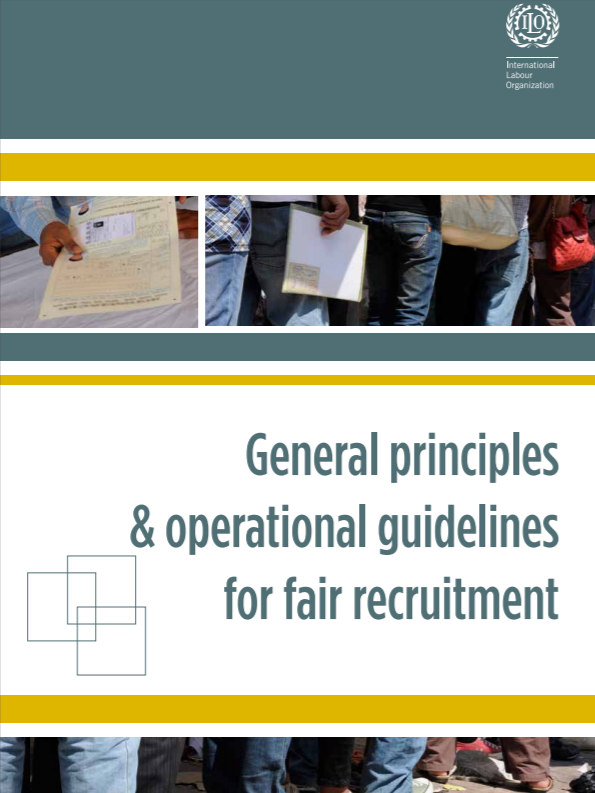These principles were launched in the framework of the Fair Recruitment Initiative led by the ILO and supported by the ITUC and the IOE.
These principles and guidelines are intended to cover the recruitment of all workers, including migrant workers, whether directly by employers or through intermediaries. They apply to recruitment within or across national borders, as well as to recruitment through temporary work agencies, and cover all sectors of the economy. Implementation of these principles and guidelines at the national level should occur after consultation between the social partners and the government.
A distinction is drawn between general principles – which are intended to orient implementation at all levels – and operational guidelines – which address responsibilities of specific actors in the recruitment process and include possible interventions and policy tools.

